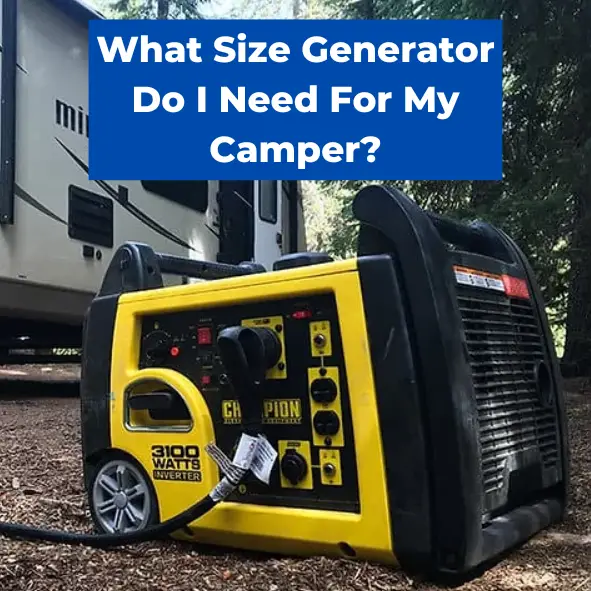Selecting the right generator for your camper is crucial to ensure all your electrical needs are met while on the road or parked at a campsite. The size of the generator you need largely depends on the specific equipment and appliances you have within your camper, as well as the energy consumption of those devices. Having a generator that is appropriately sized guarantees that both essential and non-essential appliances and systems can function properly. This leaves many RVers wondering: what size generator do I need for my camper?
Generators for campers come in various sizes, with smaller campers potentially requiring a 1500-watt generator and larger RVs or motorhomes necessitating more power. For instance, a Class B van with one AC unit may require a generator with 2,000 to 3,600 watts, while a Class A RV with two AC units would need a generator providing 5,500 to 8,000 watts. Knowing your camper’s unique energy demands will ensure a comfortable and enjoyable experience during your travels.
Understanding what size generator you need for your camper’s energy consumption requires evaluating the wattage usage of each appliance and electronic device. Calculating your camper’s total wattage needs will aid in determining the optimal generator size to accommodate all your electrical requirements.
We’ll go over how to figure out how much power and what size generator you need for your travel trailer, RV, or camper in this guide.
What Are Your Camper’s Power Needs?
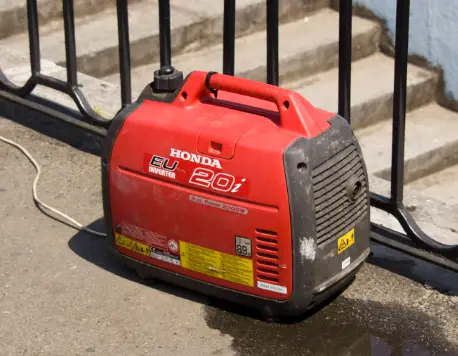
RV Appliance Wattage Requirements
To determine the appropriate generator size for your camper, it’s important to consider the wattage requirements of each appliance you plan on using. Common camping appliances and their estimated wattage include:
- Laptop: 250 watts
- Coffee Maker: 900 watts
- Toaster: 1,150 watts
- Microwave: 1,000 watts
- Hair Dryer: 1,000 watts
It’s essential to calculate the combined wattage of all devices you’ll be using simultaneously and choose a generator that can accommodate this total.
Starting Watts vs Running Watts
Appliances may require different amounts of power during startup (starting watts) compared to when they are continuously running (running watts). Appliances with a motor, like air conditioners, can require two or three times their running wattage during startup. For instance, a 15,000 BTU air conditioner might need 2,500-3,000 watts during startup, but only around 1,500 watts for continuous operation.
Volts, Amps, and Watts
When considering your camper’s power needs, it’s crucial to understand the relationship between volts (V), amps (A), and watts (W). Volts represent the voltage or electrical potential of the current, amps are the unit of electric current, and watts represent the power produced by the generator. To find the wattage, simply multiply volts by amps (W = V x A).
Most portable generators produce 120V, and the required wattage for your camper will depend on the amperage of the appliances and devices you want to use. Your electrical panel in the camper can usually provide information on the maximum amperage supported.
Choosing the Right Generator Size For Your Camper
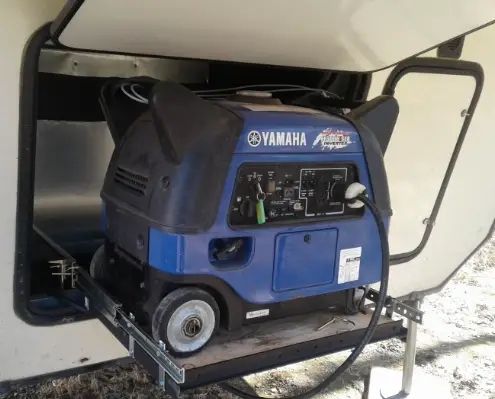
How To Calculate The Right Generator Size For Your RV
When selecting a generator for your camper, it’s crucial to choose one that can meet your power needs. To determine the correct generator size, you can use a wattage calculator or create a list of the electrical appliances and devices you’ll be using in your camper. This will help you estimate the total wattage and power requirements necessary for your adventures.
How To Calculate Required Wattage For Your Camper
To calculate the required wattage for your camper, follow these steps:
- Make a list of all the electrical appliances and devices you plan to use in your camper.
- Find the wattage of each item on the list. This information can usually be found on the device’s label or in the user manual.
- Multiply the appliance’s wattage by the hours it will be used per day to determine its daily wattage consumption.
- Add up the daily wattage consumption of all your devices to get the total required wattage.
Keep in mind that your generator should have a slightly higher wattage than your total calculated requirement to accommodate any fluctuations in power usage.
Think About Your Usual Power Usage Pattern
When choosing the right generator size for your camper, consider your usual power usage pattern. If you are frequently using high-wattage appliances, such as air conditioners, microwaves, or electric heaters, you will need a generator with higher wattage capacity.
For example, a Class B Van with one AC unit typically requires a generator with 2,000 to 3,600 watts, while a Class A RV with two AC units (15,000 BTU each) may need a generator with 5,500 to 8,000 watts of power capacity.
Additionally, consider factor in your camping habits, such as whether you prefer boondocking or staying at campgrounds with electrical hookups. Boondocking or off-grid camping may require more power to run essentials like lights, refrigerators, and charge electronics throughout your stay, leading to the need for a larger generator.
By understanding your power usage patterns and needs, you can select a generator with the appropriate wattage that will keep your camper running smoothly during your adventures.
Types of Generators for Campers
Portable Generators
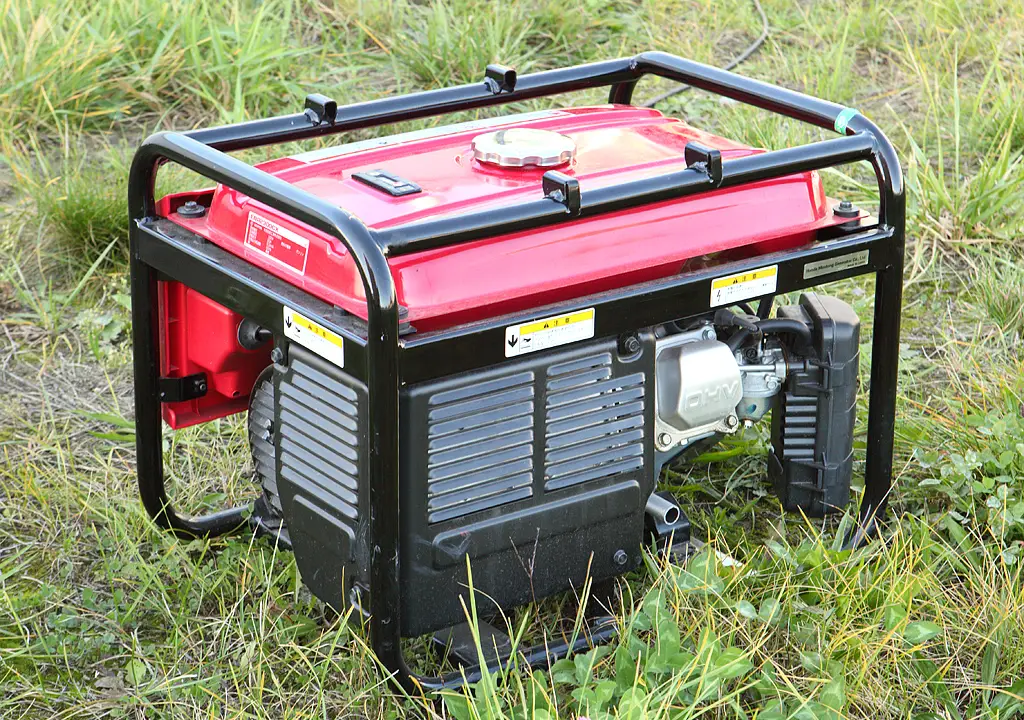
Portable generators are a popular choice for campers due to their lightweight and easy-to-carry design. They are typically powered by gasoline or diesel fuel, and provide a convenient source of power for RVs and other camping equipment.
Some portable generators come with wheels or handles for easy transport, and they are available in different sizes and power capacities. When selecting a portable generator, consider the wattage requirements of your appliances and devices so that you choose a suitable option.
Backup Generators
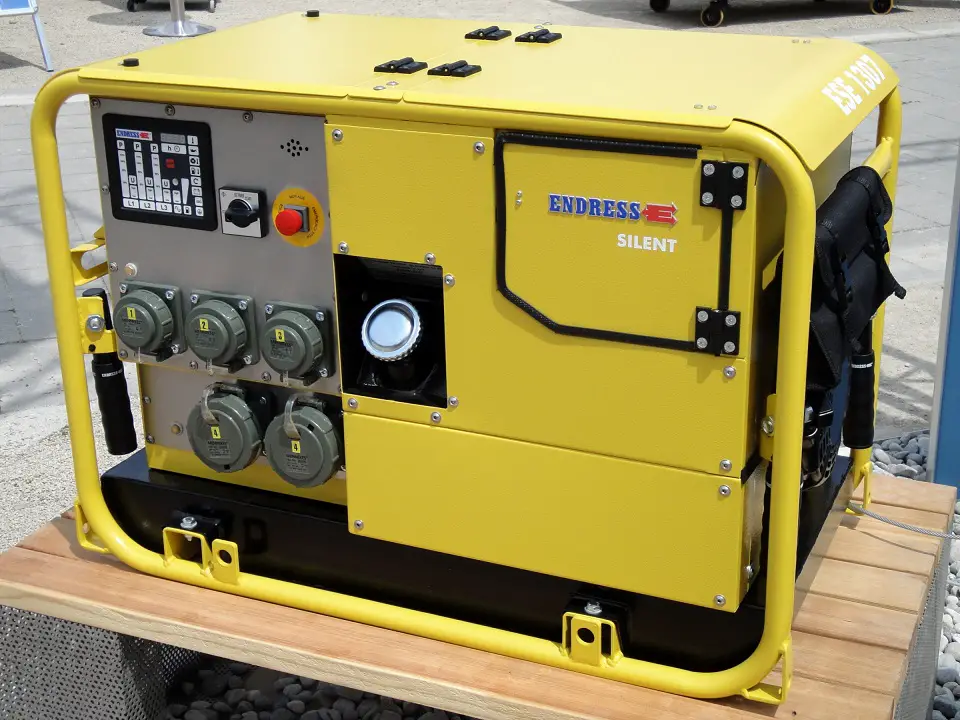
Backup generators provide emergency power in case of an outage or equipment failure. These generators are designed to automatically start when the primary power source is interrupted, ensuring that your camper’s essential appliances and systems remain operational.
Backup generators can run on a variety of fuel types, including natural gas, propane, gasoline, and diesel. It’s crucial to consider the power capacities of a backup generator to ensure that it can meet your camper’s needs during an emergency.
RV Generators
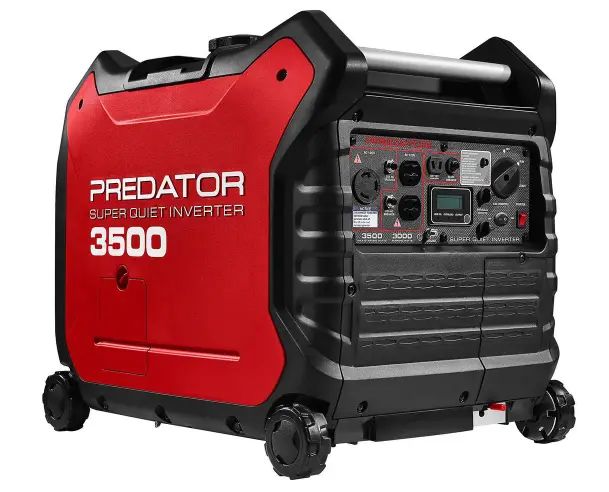
RV generators are specifically designed for recreational vehicles and offer several advantages over traditional portable generators. These generators are often integrated into the RV itself, providing a seamless power source for all onboard systems and appliances.
RV generators are usually quieter than portable generators, which can be a significant factor for campers seeking peace and tranquility. When choosing an RV generator, you should consider factors such as the fuel type, power output, noise level, and compatibility with your RV’s electrical system.
See related: How To Mount A Generator On A Travel Trailer
Dual Fuel Generators
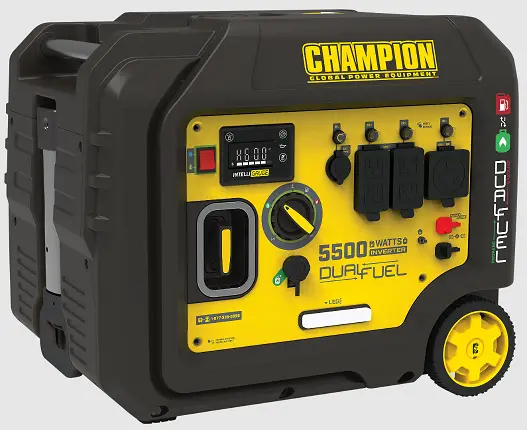
Dual fuel generators offer flexibility in fuel choice, as they can run on two different types of fuel – typically gasoline and propane. This versatility can be beneficial for campers, as it allows you to switch between fuel types depending on availability and cost.
Dual fuel generators also tend to be more environmentally friendly, as propane-powered engines produce fewer emissions compared to gasoline engines. To select a suitable dual fuel generator for your camper, consider factors such as power capacity, fuel efficiency, and portability.
Generator Fuel Options
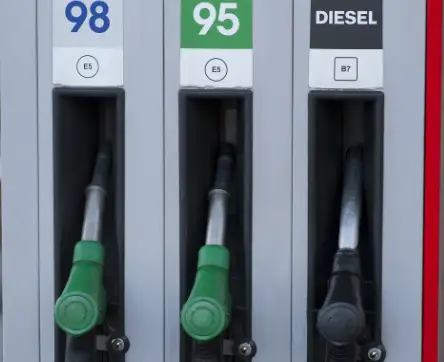
When choosing a generator for your camper, it’s essential to consider the fuel options available. Each fuel type has its pros and cons, and understanding them will help you make an informed decision. In this section, we will discuss gasoline, propane, and diesel generators.
Gasoline Generators
Gasoline generators are the most common choice due to their wide availability and relatively low cost. They are easy to start and can provide a sufficient power output for most campers. However, gasoline has some drawbacks as a fuel source for generators.
It has a short shelf life, meaning that it can degrade over time, leading to potential engine problems. Additionally, gasoline generators tend to be less fuel-efficient than other options, requiring more frequent refueling.
Propane Generators
Propane generators offer a cleaner-burning fuel option compared to gasoline and diesel. They produce fewer emissions and tend to have a longer runtime due to their fuel efficiency. Propane is also a more stable fuel, with a longer shelf life than gasoline, allowing you to store it without worrying about degradation.
Some generators can even run on both gasoline and propane, providing flexibility in fuel choice. However, propane can be more challenging to find in remote areas, and the propane tanks can add bulk to your camper setup.
Diesel Generators
Diesel generators are known for their reliability, durability, and fuel efficiency. They can provide a consistent power output even when running for extended periods. Diesel generators are particularly suited for larger campers with higher energy demands, as they can handle heavy loads without issue.
One downside to diesel generators is that they can be louder than their gasoline and propane counterparts. Additionally, diesel fuel might be harder to find in some remote areas and is more expensive than gasoline.
Noise And Convenience Factors
When selecting a generator for your camper, considering noise and convenience factors is essential. In this section, we will discuss two subtopics: Electric Start vs. Pull Start and Noise Level.
Electric Start vs Pull Start
Generators come in two main starting mechanism options: electric start and pull start. Electric start generators are typically more convenient, as they start with the push of a button or key turn. Conversely, pull start generators require a manual pulling motion to start the engine. If you prioritize ease of use and don’t mind spending a bit more on an electric start model, this option might be best for your camper.
Noise Level
Generators can produce varying levels of noise, which can be crucial when camping in close proximity to others or seeking a peaceful experience. Some generators are designed with noise reduction features and will produce lower decibels during operation.
It is essential to consider the noise level of a generator to ensure you and your neighbors’ comfort at the campground. Quieter models are generally preferred for recreational uses, but you may have to balance your preferences for noise level against other factors like cost and power output.
RV Camping With A Generator
Campground and RV Park Generator Restrictions
When camping at a campground or an RV park, it is essential to be aware of any generator restrictions. Some campgrounds have specific rules regarding the use of generators, such as required quiet hours, limited runtimes, and even restrictions on the type or size of generators allowed. Before arriving, be sure to research the restrictions to ensure your generator is suitable for the location.
Generators used at campgrounds or RV parks should be quiet, efficient, and have built-in noise reduction features to minimize disruption to other campers. This can be especially crucial when using your generator to power essential appliances in your RV or travel trailer.
Dry Camping and Boondocking
Dry camping and boondocking are popular among RV enthusiasts who prefer to camp off-grid without the amenities of a traditional campground. In these situations, a generator becomes an essential piece of equipment to power your camper and its appliances.
When choosing a generator for dry camping or boondocking, consider the size and power requirements of the various appliances you intend to run. Some common examples include:
- Air conditioners: 2,000 to 3,500 watts
- RV Refrigerators: 800 to 1,200 watts
- Microwaves: 1,000 to 1,200 watts
- Electric water heaters: 1,000 to 1,500 watts
- TVs: 100 to 400 watts
Smaller appliances, such as lights and battery chargers, will have lower wattage requirements. Be sure to calculate your camper’s total energy needs to select the appropriate generator size.
Also, consider other factors such as generator weight, fuel type (propane, gasoline, or diesel), and runtime. For boondocking and extended dry camping, you may want a generator with a longer runtime and a fuel-efficient design. In addition, some campers prefer generators with a built-in inverter to provide clean power for sensitive electronics like laptops and TVs.

